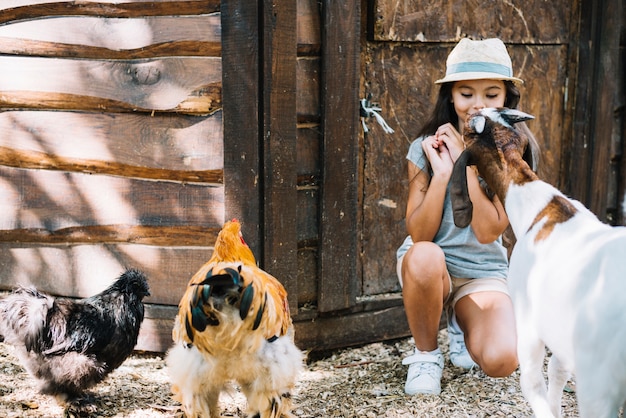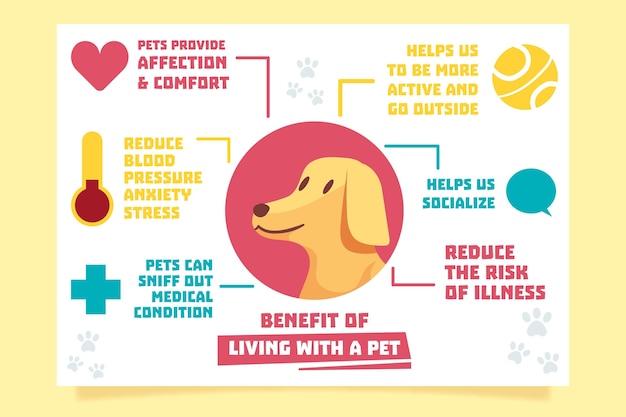Summer Heat Safety Tips for Pets and Farm Animals

Summer Heat Safety Tips for Pets and Farm Animals
Summer in Taylorville brings long, sunny days, but with the beauty of the season comes the challenge of keeping our pets and farm animals safe from the dangers of heat. Whether you share your home with dogs, cats, rabbits, or care for livestock and horses on your property, hot August afternoons in central Illinois can pose serious health risks to animals of all sizes. At Countryside Veterinary Services, located at 201 South Water Street, Taylorville, IL 62568, our veterinary professionals understand how quickly heatstroke in animals can develop and how distressing it can be for pet owners.
In this guide, we will share essential summer pet safety tips to help you prevent overheating, dehydration, and other heat-related issues. You will learn how to recognize early warning signs, understand the causes behind heat stress, and find out when it’s time to seek help from a "vet near me" or quality veterinary services in Taylorville. We will also cover specific advice for both pets and livestock, and provide resources for both preventive and emergency care. For more information about how our veterinary team can help you keep your animals protected all year long, visit our preventative care services page.
Recognizing Heat Stress and Heatstroke in Animals
Understanding when your pet or farm animal is in danger from the heat is the first step in prevention. Heatstroke in animals can occur rapidly, often before owners realize a problem exists. For dogs and cats, key symptoms include excessive panting, drooling, rapid heartbeat, weakness, confusion, or even collapse. In more severe cases, vomiting, diarrhea, and seizures may also occur. Livestock and horses may display signs such as heavy breathing, decreased appetite, restlessness, or uncoordinated movement. For rabbits and small mammals, look for rapid breathing, lethargy, and warm ears, which are often the earliest signs of overheating.
Many pet owners do not realize that certain breeds, such as brachycephalic (short-nosed) dogs and cats, are at higher risk for heat-related illnesses. Overweight pets, senior animals, and those with underlying health conditions are also more susceptible. Similarly, young livestock, pregnant animals, and those with thick coats need closer observation during hot spells. If you notice any of these symptoms in your animals during the summer in Taylorville, immediate action is vital.
Why Heatstroke and Dehydration Occur in the Summer
Heatstroke in animals is caused by their bodies absorbing more heat than they can dissipate, which is particularly common during periods of high humidity and extreme temperatures. Unlike people, most pets and livestock have limited ways to cool themselves. Dogs and cats primarily regulate their body temperature through panting and, to a lesser extent, through sweat glands in their paw pads. Livestock, such as cattle and horses, sweat to cool off, but this mechanism is often insufficient in the face of relentless heat or inadequate shade.
Factors that contribute to heat stress include inadequate access to fresh water, lack of shade, overexertion (such as exercise during midday), and confinement in hot environments, such as vehicles, barns, or poorly ventilated shelters. In Taylorville and surrounding communities, the combination of humidity and high summer temperatures can make it difficult for animals to cool themselves effectively, increasing the risk of heatstroke.
Owners should be particularly cautious during heatwaves or when the heat index climbs higher than normal. Even brief exposure to hot pavement or a locked car can be life-threatening. Recognizing these risks in both pets and livestock is essential for effective prevention, especially for those searching for animal care in Taylorville and surrounding communities.
Professional Treatment and Management of Heatstroke
If you suspect your pet or farm animal is suffering from heatstroke in Taylorville, fast and appropriate action can save lives. The initial steps involve moving the animal to a shaded, cool area and offering small amounts of cool (not cold) water if they are alert enough to drink. Never force water if your pet cannot swallow or is unconscious; this can lead to choking. Cooling measures, such as wetting the animal with lukewarm water or using fans to promote evaporation, can help lower body temperature gradually.
However, professional veterinary intervention is often necessary, especially for severe cases. Our veterinary team at Countryside Veterinary Services is equipped to provide comprehensive diagnostic testing, intravenous fluid therapy, oxygen support, and monitoring for organ damage that can result from heatstroke. Treatments may also include medications to control seizures or address secondary complications such as kidney failure or shock.
For large animals and livestock, our team can come directly to your farm to assess and treat heat-related emergencies, utilizing portable equipment and expertise tailored to the needs of horses, cattle, and other farm animals. If you are seeking veterinary services for your livestock, learn more about our farm and production animal care available in Taylorville and nearby areas.
Remember, the prognosis for heatstroke in animals depends on how quickly care is provided. Timely intervention from a "veterinarian near me" or quality veterinary services in Taylorville can make all the difference in recovery.
Preventing Heatstroke: Summer Pet Safety Tips for Taylorville
Prevention is always preferable to treatment, and there are many proactive steps you can take to keep your pets, horses, and livestock safe during the hot summer months. Key summer pet safety tips include always providing unlimited access to clean, fresh water and ensuring that animals have access to shaded areas throughout the day. For outdoor pets or farm animals, regularly check that shelter structures are well-ventilated and offer relief from direct sunlight.
Exercise should be limited to the cooler parts of the day, such as early morning or late evening. Never walk dogs or allow animals to play on hot pavement, as their paw pads can burn quickly. For pets that must be outside, consider pet-safe cooling mats or wet towels placed in shaded areas. Livestock benefit from misting fans or sprinklers, especially during prolonged heatwaves.
Grooming plays a vital role in summer pet safety as well. Regular brushing helps remove excess undercoat in dogs, cats, and some livestock, improving air circulation against the skin. However, avoid shaving certain breeds, as their coats provide natural insulation and sun protection.
For those planning summer travel or vacations, boarding your pet at a supervised facility can provide peace of mind. Our pet boarding services in Taylorville ensure your pets are kept in a cool, safe, and caring environment, monitored by our experienced veterinary professionals.
When to Seek Veterinary Care for Heat-Related Emergencies
Knowing when to seek professional help is crucial in preventing serious complications from heatstroke in animals. If your pet or livestock displays any of the warning signs mentioned earlier—including excessive panting, vomiting, unresponsiveness, or difficulty walking—immediate veterinary attention is needed. Do not wait for symptoms to improve, as delays can lead to irreversible organ damage or even death.
For less urgent but still concerning situations, such as mild lethargy, decreased appetite, or subtle changes in behavior during hot weather, scheduling a wellness examination can help identify underlying issues and ensure your animal is healthy enough to handle summer’s challenges. Preventive care services are especially important for at-risk animals, such as those with chronic medical conditions or advanced age.
Our veterinary professionals at Countryside Veterinary Services always recommend erring on the side of caution. If you are ever in doubt, call (770) 788-7387 for guidance. We are here to provide veterinary services in Taylorville and surrounding communities, offering compassionate care and expert advice tailored to your animal’s needs.
Conclusion: Keeping Your Animals Safe with Quality Veterinary Services in Taylorville
Summer heat can be relentless in Taylorville, but with the right knowledge and proactive care, you can protect your pets and farm animals from the dangers of heatstroke and dehydration. By recognizing early warning signs, understanding the causes of heat stress, and taking preventive measures, you will help ensure the well-being of your animals throughout the hottest months of the year.
Our veterinary team at Countryside Veterinary Services is your trusted partner for all aspects of animal health, from routine checkups to emergency care. If you have any concerns or need to schedule an appointment, reach out to us at (770) 788-7387 or visit our Taylorville location. Remember, when searching for a "vet near me" or seeking advice on heatstroke in animals, choosing a veterinary clinic with experience serving Taylorville and surrounding communities is key.
To learn more about how preventive care can help your pet thrive year-round, explore our preventative care services or schedule a wellness examination today. Your animal’s health and safety are always our top priorities, and our veterinarians are here to support you with compassion and expertise every step of the way.
Disclaimer
This article is intended for informational purposes only and does not replace professional veterinary advice. If you suspect your animal is experiencing a medical emergency, please contact your veterinarian immediately. For after-hours pet emergencies, you may also consider the Small Animals Emergency Clinic in Springfield or the University of Illinois Veterinary Teaching Hospital for large animals. Always consult with a licensed veterinary professional for specific recommendations regarding your pet’s health.




















